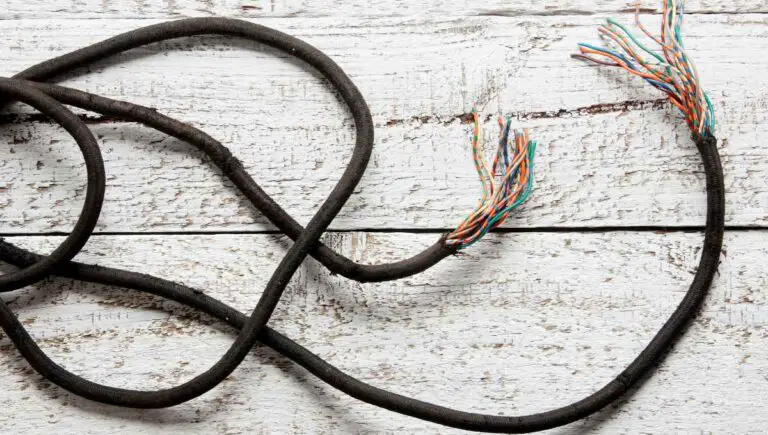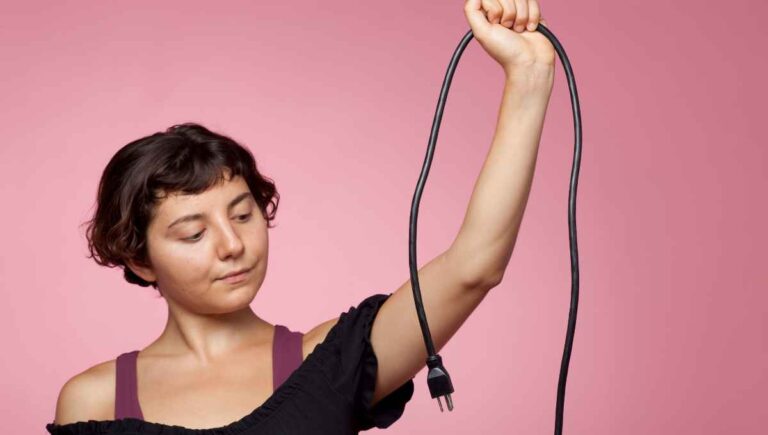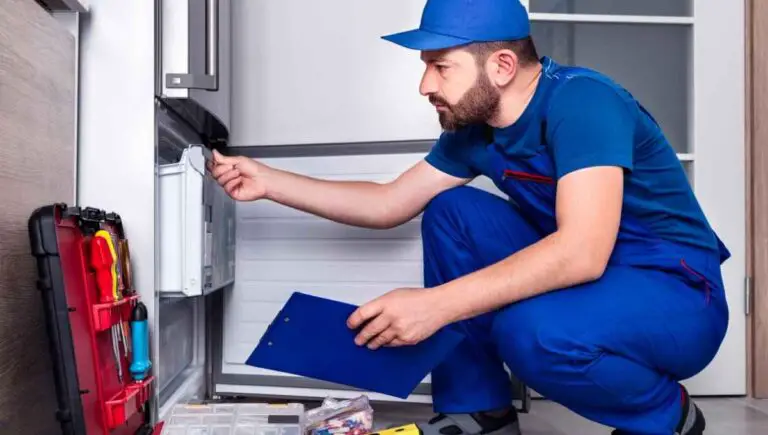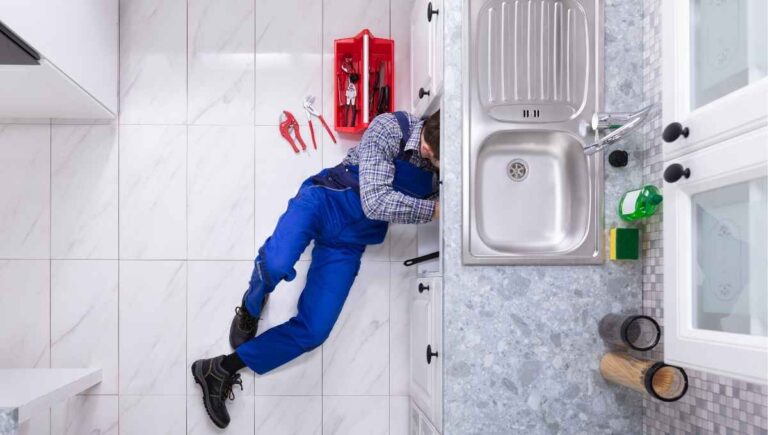Can a Refrigerator Share an Outlet? (How to Prevent Damage)
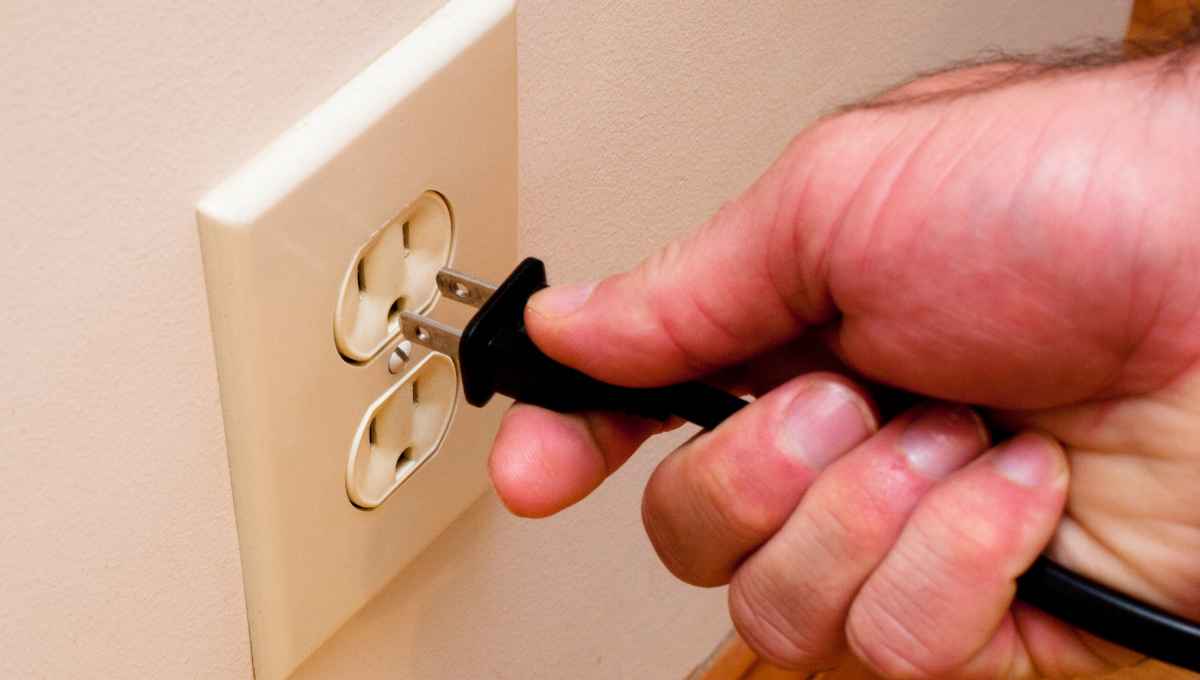
Refrigerators are a staple in modern households, providing us with a convenient place to store our food and drinks. When it comes to plugging in your refrigerator, you may wonder if it’s possible to share an outlet with another appliance.
It is possible for a refrigerator to share an outlet with another appliance. However, it’s important to make sure that the outlet you are using is capable of handling the combined electrical load of both appliances. This will help to prevent overloading and potential electrical hazards.
Nobody wants to have overloaded circuits, but there are only so many outlets available per room. So, how do you fix the circuit problem? We’ll talk about that and much more right now! Check it out!
This post contains affiliate links. This means Household Blogger may earn a commission should you make a purchase using any of our links. Please refer to our full affiliate disclosure policy for full details.
Here’s a Quick Pro Tip!
If you’re re-doing your kitchen, it’s up to you to make sure your wiring is up to code and that you have the necessary outlets and accompaniments for your appliances. While that may not seem like a big deal, keeping everything up to code is very important.
Here are some of our top choices for new kitchens to help you ensure you have the best and safest options:
Extension Cord – While you shouldn’t use them unless absolutely necessary, this heavy-duty cord can handle even a refrigerator!
Outlets – Designed to handle up to 20 amps.
Circuit Finder – Make sure you know what outlets are on what circuits.
Refrigerator Outlets
If you’re running low on available outlets, it’s tempting to plug something in with your refrigerator. But is this safe? In this section, we’ll delve deeper into the rules surrounding your ability to share a refrigerators outlet with another appliance.
Should a Refrigerator Have a Dedicated Outlet?
Refrigerators require a lot of power to keep your food at a regulated temperature. Therefore, it’s best for your circuits to keep your refrigerator on its own dedicated outlet. It should not share one with other electronics.
Your refrigerator uses about 150 kWh a month. Using that much energy means it shouldn’t try to share the output with another electronic, as it may cause your circuits to become overdrawn, which can lead to your breaker tripping or can even start a fire.
How Many Refrigerators Can You Plug Into One Outlet?
You should only have one refrigerator plugged into a single outlet. The other plug-in should remain empty to prevent overloading circuits or shorting your refrigerator.
While you may think using a surge protector in the extra outlet is a good idea, that can be extremely dangerous. Unless you have dedicated circuits that can handle that much output, you shouldn’t plug anything else in the same outlet as your refrigerator.
Can a Fridge Share an Outlet With Something Else?
It’s best to keep your refrigerator separate from any other electronics. This means don’t share your refrigerators outlet. While some outlets can handle sharing, most cannot, and it can be dangerous if you overload an outlet.
Unless you know for sure that your outlets have been designed to handle the output of large electronics, it’s safest not to overload them with a refrigerator and other electronics. If in doubt, don’t plug a second electronic into the wall.
Can a Refrigerator Share an Outlet With an Oven?
Refrigerators and ovens are two of the biggest sources of energy consumption in a kitchen. Therefore, they should not be sharing an outlet, as the outlet is likely to be overdrawn and could short out, causing the breaker to flip and, more seriously, raising the potential of a fire.
This is especially true for older homes. If your wiring is old, it’s more likely to spark if overloaded. Additionally, make sure that you know how much output your refrigerator is producing at all times to ensure it’s not overloading the system.
Can You Run Two Refrigerators on One Outlet?
You should not run two refrigerators on the same outlet, even with a surge protector. While you may be short on outlets, using the same one for two refrigerators can be very dangerous.
Unless you have new wiring in your kitchen and know that your outlets can handle the output from two large devices, like refrigerators, it’s best to avoid having them plugged into the same outlet.
Can I Plug a Fridge and Microwave Into the Same Outlet?
Refrigerators need their own outlet. They should not share one with a microwave, or any other large appliance, such as air conditioners, ovens, washers, dryers, or kitchen stoves.
This is because all these appliances require a large amount of electricity, and having two plugged into one outlet may cause the outlet to overload. This can lead to blowing fuses and, in extreme cases, can cause a fire.
Can a Fridge and a Freezer Be Plugged Into the Same Outlet?
You should not plug your refrigerator and a separate freezer into the same outlet. Both units require large amounts of electricity, and you can overload the circuit if you plug them in together.
Stand-alone freezers also consume large amounts of electricity and shouldn’t share an outlet with your refrigerator. While it may be inconvenient not to have the fridge and freezer immediately next to each other, it is safer.
Circuits
We’ve already mentioned circuits once or twice, but now, let’s really dig into why it’s important to keep your circuits and outlets from overloading. We’re talking about it right now!
Can a Refrigerator and Dishwasher Share a Circuit?
Refrigerators and dishwashers can share a circuit, as circuits are made to handle the expected use of these large appliances. Circuits are typically built to handle up to 20 amps at a time. As a result, both appliances typically give off between six and 12 amps.
This large discrepancy is because both appliances require more amps to start up, so when you start your dishwasher or when your fridge kicks on to cool, it draws about 12 amps. Once that initial energy has kicked on, the amp drops to around six for the duration of the cycle.
What Happens if a Refrigerator Is Not on a Dedicated Circuit?
As long as you’re not overworking the circuit your refrigerator is on, you don’t have to keep it dedicated to just the fridge. You can run multiple large appliances on the same circuit as long as you don’t run everything simultaneously.
If you’re unsure what circuit your current electronics are on, it’s highly recommended that you use a circuit breaker finder to determine what’s on what breaker. Otherwise, you may risk overwhelming the circuits.
Can a Refrigerator and Microwave Share a Circuit?
All large appliances have an output of between six and twelve amps, using the higher amount upon startup. Additionally, most circuits can handle up to 20 amps. Therefore, a microwave and a refrigerator can share a circuit with minimal problems, though it is still not recommended.
However, if you notice your lights dimming or browning out when your refrigerator kicks on or whenever you use the microwave, you may need to move the microwave. The brownout means that your circuit is drawing too much power at once and is a sign something is wrong.
Can a Refrigerator and an Oven Share a Circuit?
If your oven/stovetop uses electric heat, it should not share a circuit with a refrigerator. This would overdraw the circuits and may trip the circuit breaker. While mostly inconvenient, if you have old wiring, it could cause bigger problems, including starting a fire.
Your refrigerator and oven should come with an owner’s manual, which outlines whether or not the appliance can share a circuit. Even so, be prepared to have separate circuits for each major appliance in your home.
You might also enjoy our post on If You Can Put a Refrigerator on Carpet
Can a Refrigerator Share a Circuit With Another Appliance?
For safety purposes, it’s best not to allow your refrigerator to share a circuit with another appliance. In contrast, some low-energy output appliances may be safe to share a circuit with. If you’re unsure, it’s best to allow your refrigerator to its dedicated circuit.
While allowing your microwave to share a circuit with a refrigerator might be tempting, if you overload the circuit, you may have problems with your breakers tripping constantly. If it shorts, you may have an electrical fire on your hands.
Should a Refrigerator Be on a GFCI Circuit?
Your refrigerator doesn’t need to be on a ground fault circuit interrupter or GFCI. In fact, these types of circuits may cause your refrigerator or other major appliances to trip the breaker more often.
GFCI circuits are only required for countertop surfaces in most circumstances. This does not include appliances like refrigerators, washers, or dryers. Most manufacturers do not recommend using GFCI circuits for these appliances due to their tendency to cause ‘nuisance tripping.’
Overloads
One of the major concerns with a refrigerator sharing an outlet, or even a circuit, is that it might cause an overload. But what exactly is an overload? We’re discussing that now!
What Happens if You Overload an Outlet?
You’ll overload the outlet if you draw too much power at once. This will cause your circuit breaker to trip, automatically cutting the circuit’s power. This is to prevent the machine from overloading or overheating.
Additionally, circuit breakers are important because they help prevent the wiring from overheating. Overheated wires can overheat the insulation, which will then melt and cause a fire.
How Do You Know if You’re Overloading an Outlet?
One of the most common signs of an overloaded outlet is when the lights dim or go out when an appliance turns on. This typically means that the outlet used by that appliance is working too hard, and you need to unplug something.
You may also notice an odor of burning plastic or smoke. If you notice any of these signs, it is very important you unplug something immediately. You risk ruining your wiring or even starting a fire if you don’t.
Can Just a Refrigerator Overload an Outlet?
While your refrigerator doesn’t share power well, it shouldn’t overload it if it’s on its own outlet. If you notice your lights dimming or the outlet is hot and showing signs of overloading, you should call an electrician.
If your refrigerator alone is overloading the outlet, something may be miswired, or the wiring is failing. Both of these are very concerning and may lead to an electrical fire. If an electrical fire starts, remember not to pour water on it! Instead, you should have a fire extinguisher close at hand.
Does a Refrigerator Need a 15 or 20-Amp Outlet?
Your refrigerator should be on a dedicated 20-amp outlet. If your outlets aren’t equipped to handle enough amps, you could leave yourself at risk for short circuits, tripping breakers, and in extreme cases, fire.
20-Amp outlets are pretty much standard for kitchens these days. That being said, if your home is older, you may need to contact a professional to ensure that your outlets are safe for a refrigerator to be plugged into.
What Are the Warning Signs of an Overloaded Circuit?
The most common warning sign of an overloaded circuit is the dimming of your lights. This is a sign that your outlets can’t handle that much of a power draw at once, and it needs to take power away from the lights to handle it.
However, there are several other common warning signs, including:
- Smells of burning rubber or plastic
- Burning odor from the outlets
- Appliances won’t turn on
- Circuit breaker trips more often than usual
- Wall plates look damaged, i.e., discolored
- Outlet plates are warm to the touch
- Outlets, switches, or appliances give a mild shock when touched
You might also enjoy our post on Can You Put a Refrigerator in its Side?
Related Questions
Can a Refrigerator Be Plugged Into an Extension Cord?
As long as the extension cord is plugged into an outlet of at least 20 amps and nothing else is plugged into the outlet or extension cord, it is fine to use one on your refrigerator. Make sure you purchase an extension cord that can handle that much energy.
Most extension cords aren’t certified to handle the power of a refrigerator. However, you can buy heavy-duty extension cords that are up to the task. Failure to use the correct one can lead to your refrigerator not working correctly.
How Much Current Does a Refrigerator Draw?
On startup, a refrigerator typically draws up to 20 amps. This is because it needs to cycle the cooling system, which takes extra energy. However, once it’s started, it settles down to ten amps or less.
Your refrigerator is one of the highest energy draws in your home. While it does not continuously draw energy, it needs a large amount at once when it cycles. This is just one reason it’s recommended that a fridge doesn’t share an outlet.
What Size Breaker Do I Need for a Refrigerator?
Your refrigerator needs a 120-branch circuit with grounding on its own outlet to run most effectively and to prevent overloading. It should also have a 20 amp circuit breaker to prevent trips.
Not using these parameters can lead to brownouts, tripped breakers, and even electrical fires. So while it may seem like a waste, having your refrigerator on its own outlet is best for your home.
Final Thoughts
Having your refrigerator share an outlet may be useful in a small kitchen with few sources of electricity, but it can be very dangerous. You should not allow shared outlets with major appliances, including using surge protectors.
Instead, keep your appliances apart and on their own circuits for best results, fewer breaker trips, and less light dimming. We hope these tips help keep your kitchen appliances as safe as possible!






